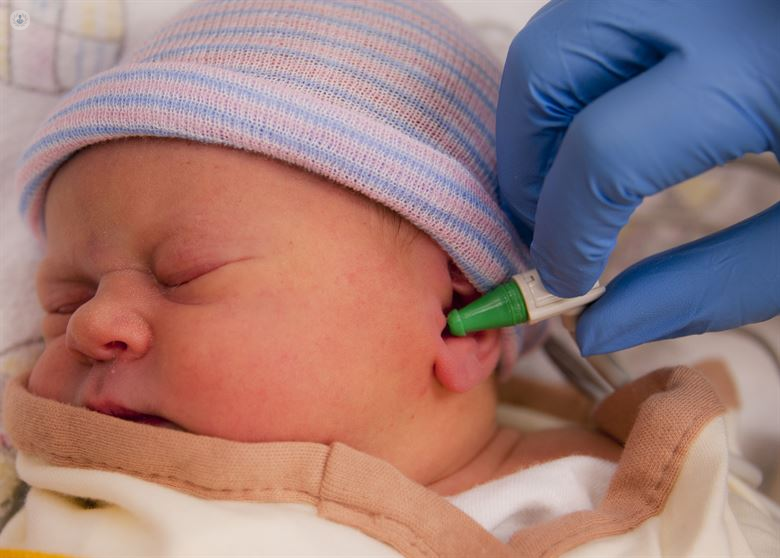ENT Pediatric Specialist: A Comprehensive Guide to Ear, Nose, and Throat Care for Children

As a parent, ensuring your child’s health and well-being is a top priority, and when it comes to conditions affecting the ear, nose, and throat (ENT), specialized care is often necessary. An ENT pediatric specialist is a medical professional trained to diagnose, treat, and manage a wide range of conditions related to the ear, nose, throat, and related structures in children. From hearing issues to respiratory concerns, these specialists play a crucial role in your child’s overall health, ensuring they grow up with the best quality of life possible.
In this article, we will explore the role of an ent pediatric specialist, the common conditions they treat, and how parents can ensure their children receive the best care for ENT-related issues.
What is an ENT Pediatric Specialist?
An ENT pediatric specialist, also known as a pediatric otolaryngologist, is a physician who has completed advanced training in the diagnosis and treatment of ear, nose, and throat conditions in children. These specialists are experts in managing disorders of the ear, nose, throat, and other related structures such as the sinuses, voice box (larynx), and upper airways.
Otolaryngology is a medical field that spans several areas, including:
- Ear Care: The treatment of hearing loss, ear infections, and disorders of the ear canal or eardrum.
- Nose Care: Addressing nasal issues such as chronic sinusitis, allergies, or congenital abnormalities.
- Throat Care: Treating conditions affecting the voice box (larynx), swallowing difficulties, and throat infections.
- Sleep-Related Issues: Diagnosing and managing conditions like sleep apnea, snoring, and breathing problems during sleep.
ENT pediatric specialists are trained to work with children, making them particularly adept at understanding how to address medical issues in young patients, as well as how to effectively communicate with both children and their families.
Why is Pediatric ENT Care Important?
Children’s ENT issues are distinct from those found in adults, primarily due to the fact that a child’s anatomy and physiological processes are still developing. Some conditions may resolve on their own as children grow, while others may require intervention from an experienced pediatric specialist. Furthermore, children may not be able to articulate their symptoms as well as adults, making accurate diagnosis and treatment even more critical.
A pediatric ENT specialist has the expertise to:
- Accurately diagnose conditions in children, even when they may be unable to communicate clearly about their symptoms.
- Administer appropriate treatment tailored to a child’s developmental stage.
- Provide parents with helpful guidance and reassurance.
- Prevent conditions from worsening and causing long-term complications.
Common Conditions Treated by Pediatric ENT Specialists
Pediatric ENT specialists treat a variety of conditions that affect the ear, nose, and throat. Below are some of the most common issues that may necessitate the expertise of an ENT pediatric specialist:
Ear Infections (Otitis Media)
Ear infections are among the most common reasons children are referred to an ENT pediatric specialist. These infections can cause pain, fever, and irritability in children and can lead to hearing loss if not treated properly. Recurrent ear infections are especially concerning, as they may lead to complications like hearing impairment or speech delays.
An ENT pediatric specialist may treat ear infections through:
- Antibiotics for bacterial infections.
- Drainage procedures if fluid builds up in the ear.
- Surgery, such as the insertion of ear tubes, to prevent recurrent infections.
Hearing Loss
Hearing issues can range from mild to profound and may result from genetic factors, ear infections, or exposure to loud noises. Early identification and treatment are crucial for language and speech development.
An ENT pediatric specialist can:
- Perform hearing tests to assess the extent of hearing loss.
- Provide treatments or interventions like hearing aids or cochlear implants if needed.
- Advise on speech therapy and developmental support for children with hearing loss.
Tonsillitis and Adenoid Issues
Tonsillitis and adenoid problems are common in children, leading to symptoms like sore throat, difficulty swallowing, and breathing issues. Enlarged tonsils or adenoids can cause sleep apnea and other respiratory problems.
An ENT pediatric specialist may recommend:
- Antibiotics for bacterial infections.
- Surgery (tonsillectomy or adenoidectomy) if the issues are chronic or severe.
Sinusitis and Allergies
Children with chronic sinusitis or allergies often experience nasal congestion, runny noses, sneezing, and difficulty breathing. These conditions can be particularly troublesome during seasonal changes. In some cases, untreated allergies may lead to chronic sinus infections, which can affect a child’s quality of life.
Treatment options from a pediatric ENT specialist include:
- Prescribing medications such as antihistamines or nasal sprays.
- Allergy testing and treatment plans.
- Surgical intervention for persistent sinus issues.
Sleep Apnea and Snoring
Sleep apnea is a condition where a child’s breathing is repeatedly interrupted during sleep, leading to poor sleep quality. Snoring is a common symptom of sleep apnea, but not all children who snore have sleep apnea.
Symptoms of sleep apnea in children include:
- Difficulty waking up in the morning.
- Excessive daytime sleepiness or irritability.
- Restless sleep and snoring.
ENT pediatric specialists can perform sleep studies, recommend treatments such as CPAP machines, or even advise surgical options like tonsil and adenoid removal if the child has enlarged structures blocking the airway.
Congenital Disorders
Some children are born with congenital conditions that affect the ear, nose, and throat. These may include conditions like cleft palates, ear malformations, or structural issues with the airway.
ENT pediatric specialists are equipped to:
- Diagnose and treat congenital disorders early in life.
- Provide surgeries or therapies to correct anatomical issues.
- Guide families on how to manage the condition as the child grows.
Speech and Language Disorders
Speech and language disorders can arise from several causes, including hearing loss, developmental delays, or physical conditions such as cleft lip and palate. An ENT pediatric specialist plays a critical role in diagnosing these conditions and working with speech therapists and other specialists to support the child’s communication skills.
When Should You Consult a Pediatric ENT Specialist?
While many ear, nose, and throat issues in children can be treated by a pediatrician, some conditions require the expertise of an ent pediatric specialist. Parents should consider seeking specialist care if their child experiences:
- Persistent ear pain, hearing loss, or drainage from the ears.
- Chronic or recurrent sinus infections.
- Difficulty breathing, excessive snoring, or signs of sleep apnea.
- Severe or ongoing sore throats, difficulty swallowing, or frequent tonsil infections.
- Allergies that are not adequately controlled with standard treatments.
- Congenital conditions that affect the ear, nose, or throat.
- Speech and language delays or difficulties.
What to Expect During a Visit to a Pediatric ENT Specialist
During a consultation with a pediatric ENT specialist, parents can expect the following:
- Medical History: The doctor will ask about the child’s medical history, symptoms, and any previous treatments.
- Physical Examination: The specialist will examine the child’s ears, nose, and throat to check for any signs of infection, inflammation, or anatomical abnormalities.
- Tests and Screenings: Depending on the symptoms, the specialist may perform hearing tests, allergy testing, or imaging studies like X-rays or CT scans.
- Treatment Plan: After diagnosing the condition, the specialist will discuss treatment options, which may include medication, lifestyle changes, or surgical interventions.
Conclusion
ENT pediatric specialists play an essential role in addressing a wide variety of ear, nose, and throat issues that affect children. From treating ear infections to managing hearing loss, tonsillitis, sleep apnea, and allergies, these specialists have the knowledge and experience to provide effective care tailored to the unique needs of children. Early intervention and proper treatment can significantly improve a child’s quality of life, promote healthy development, and prevent long-term complications.
If your child is experiencing persistent ENT issues or developmental concerns related to speech or hearing, consulting a pediatric ENT specialist can help ensure they receive the proper diagnosis and treatment to lead a healthy, happy life.



